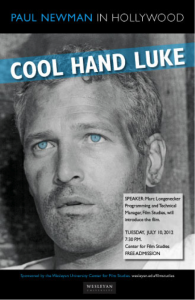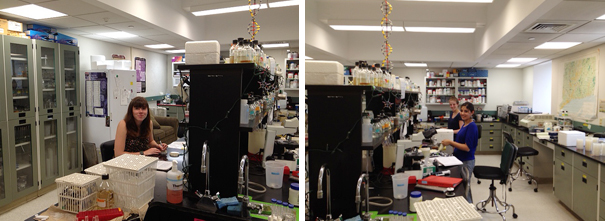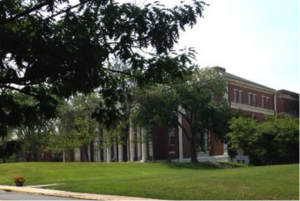From my remarks at commencement, May 27, 2012. To read the really important speeches, see: http://newsletter.blogs.wesleyan.edu/2012/05/27/commencement/
When most of you began your Wesleyan education in the fall of 2008, the world was in a precarious state. It was an odd time to be investing in the future. But that’s what education is: a hopeful investment in the future. When you began here, America was waging two distant wars, the twisted legacies of a vicious attack on our country that took place when most of you were still in middle school. Today America has ended combat operations in Iraq and announced our intention to withdraw our troops from Afghanistan in the next two years. It is Memorial Day weekend, a time to reflect on the sacrifices that so many have made on behalf of our country, as we also reflect on the civilian lives that have been lost during these conflicts. We remember, but what shall we do with these memories?
In the fall of 2008 our country was headed toward the most significant economic dislocation since the Great Depression. Gigantic financial institutions that had ingeniously found ways to make enormous amounts of money while claiming to have mastered risk with casino-like schemes, were suddenly calling loudly for government help. The entire financial system seemed to be on the brink of collapse, and through a series of measures designed to restore some basic stability to our economic life, the Federal government averted an even greater disaster than the one which has caused millions of Americans to lose their jobs, their homes and their hopes for the future. We can recall those who suffer still in this economy, even as a fortunate few reap huge rewards. We remember, but what shall we do with these memories?
In what was for most of you your first year at Wesleyan you witnessed a classmate brutally murdered by a man whose mental illness is so severe that he has been judged not responsible for his actions. Not responsible for his actions but easily able to buy a gun while continuing to stalk a woman. We will never forget Johanna’s vulnerability to gun violence; we will not forget that her vulnerability as a woman is not a rarity in America. We remember, but what shall we do with these memories?
For the last four years you have found ways to keep these memories alive while pursuing your education with, as we like to say at Wes, “boldness, rigor and practical idealism.” Allow me a word or two about that boldness. I don’t mean just the ability to dance for hours while roaming the campus in large groups, nor do I mean the chutzpa to buy and then sell the ACB, or to challenge Rosenthal and Roth to a game of hoops. I mean the audacity to write poetry that is as searing as it is heartfelt; to perform classic works of theater or music with a personal reframing that is startling yet faithful; to crunch through terabytes of data to better understand patterns that others have long misunderstood. This is audacity in the service of experience, in the service of learning.
The class of 2012 has often displayed a commitment to rigor that complements this boldness. Whether it be the meticulous efforts to better understand the role of interneurons in seizures; or to analyze representations of trauma in great works of literature; or to study geochemisty and sedimentology through an analysis of local river systems; or to understand the differences between Hegel and Adorno on aesthetics…these all took a commitment to focus and detail, to painstaking analysis and clear communication. There is also, I believe, a form of idealism in this work: the ideal that the experience of learning, the labor of learning, will result in something worth building upon.
With regards to practical idealism, too, this class is truly remarkable. So many examples come to mind: Kennedy Odede’s work in education in Kibera, Kenya; or Tasmiha Khan’s project for clean water and sanitation in Khalishpur, Bangladesh; or Raghu Appasani’s efforts to improve mental health treatment in rural India; or Harry Bartle and Maddie Neufield’s collaboration with Middletown Youth Radio, or the scores of tutors at MacDonough, Traverse Square, Green Street and Upward Bound – so many members of the class of 2012 have defied hipster pessimism and irony with their brains and sweat. Along with my colleagues on the Board, faculty and staff, I marvel at your vivacity and your care.
At Wesleyan we believe that this vivacity and care are key to the happiness of a lifetime of learning, commitment and participation. We want you to remember the pleasure of the camaraderie and openness that have characterized the Wesleyan community to which you will always belong. We want you to remember these pleasures, the feelings of freedom and accomplishment, because we believe that these will stimulate you to continue to be bold, to be rigorous, and to nurture your practical idealism. This may not be as easy as you imagine. From all around you will come calls for a practicality that is not so idealistic — calls to be more serious, more attentive to “the real world.” Make no mistake: these are really calls for conformity, demands for conventional thinking that, if heeded, will impoverish your, our, economic, cultural and personal lives.
As I say each year, generations of Wesleyan alumni can unite around the rejection of conformity and conventional thinking. Wes alumni have used their education to mold the course of culture themselves lest the future be shaped by those for whom creativity and change, freedom and equality, diversity and tolerance, are much too threatening. Now we alumni are counting on you to join us in helping to shape our culture, so that it will not be shaped by forces of fear and violence. As you shape this future, we are counting on you to remember.
We remember, but what shall we do with these memories? I trust you will gratefully acknowledge those who have sacrificed to nurture you, to guide you, and to protect our freedoms. I trust you will act to reduce violence in the world around us, especially those forms of violence that target the most vulnerable. I trust that you will practice forms of thinking that create opportunity rather than defend inequality and privilege. I trust you will resist the temptations of conformity even as you reject puerile and narcissistic displays of separateness.
I have this trust because I have seen what you can do. What you can do fills me with hope, fills me with confidence in the investment of education. I know that you will find new ways to build community, to experience the arts, to join personal authenticity with compassionate solidarity. When this happens, you will feel the power and promise of your education. And we, your Wesleyan family, we will be proud of how you keep your education alive by making it effective in the world.
My dear friends and colleagues, four years ago I helped unload your cars here on Andrus field, and as you go off to your exciting pursuits I will be cheering for you back here in Middletown. Come home often to share your news, your memories and your dreams. Thank you and Good luck!







